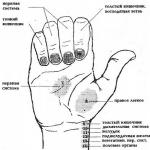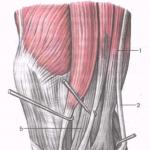It hurts to urinate after a smear. Questions
Urethral smear - the procedure is performed to collect material and determine the presence of infection in the urogenital system. The urethra (urethra) is an unpaired tubular organ of the urogenital system. Present in men and women. Its mucous is very delicate, the tissues resemble a sponge in structure. The body is subject to inflammatory processes and infectious diseases. Often patients note that after a smear from the urethra it is painful to write. Why is this happening?
If a man or a woman is disturbed by discomfort in the genital area, it is worth contacting a doctor who determines the need to take a smear. A smear is taken when these symptoms occur:
- itching and burning in the genital area;
- highlighting unusual color and smell;
- pain when urinating;
- nagging and aching pain in the area of men;
- discomfort in the pelvic region.
The presence of such symptoms should alert the potential patient and push him to a hike to a specialist. Only he can confirm the need for analysis.
Biomaterial sampling procedure
To take a smear on the flora can only experienced and qualified specialist. Male - urologist, female - gynecologist. Neither the medical staff, nor the laboratory technicians have anything to do with this. It is best to take the analysis in a public clinic, as in private, often taking material is not carried out according to the rules.
The procedure for taking a smear in men and women occurs in different ways. A probe or applicator is inserted into a man for taking material into the sexual organ to a depth of about 3 cm. It is drawn out by rotational movements, thus collecting discharge.
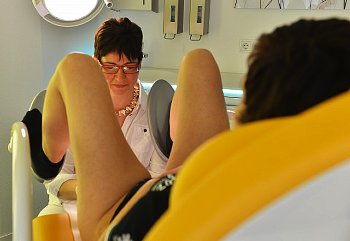
In women, the collection of biomaterial from the urethra occurs in two ways.
- In the gynecological chair with an applicator. It is introduced into the urethra to a depth of 2-4 cm and carefully, twisting movements remove epithelial cells.
- Using your finger. It is inserted into the vagina, pressed on the back of the urethra. The secreted mucus is collected on the glass.
During the procedure should not be hurt. Pain may be present in inflammation in the genitals of both.
Expect some discomfort after the procedure. The most common complaints are:
- hurts while trying to write;
- increased secretion;
- the appearance of a few drops of blood from the sexual organ during the first visit to the toilet.
All these phenomena are temporary and pass by themselves in 2-3 days. No special treatment is required.
If the pain after the procedure does not go away during this time, and purulent discharges are added to the unpleasant sensations, you should again consult a doctor. It is possible that an infection was recorded during the analysis.
What diseases does a smear determine?
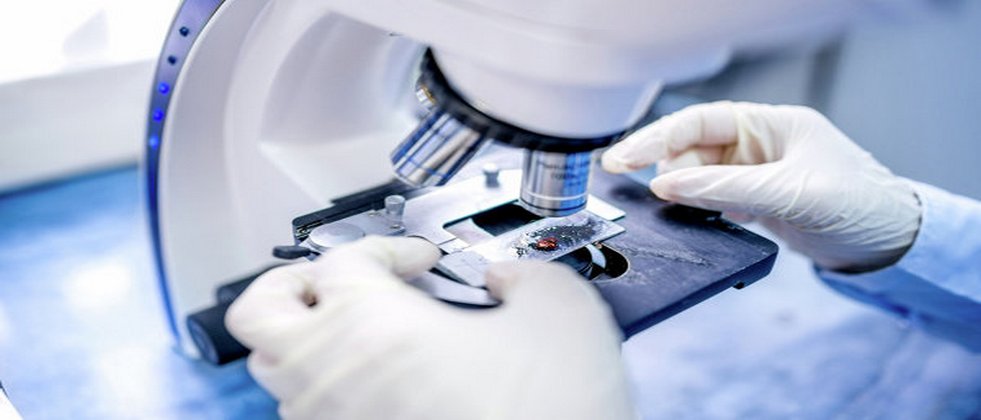
Despite some unpleasant consequences, smear taking is an important and necessary procedure. It helps to identify a number of infectious, bacteriological diseases in the early stages and successfully overcome them. It:
- prostatitis;
- cystitis;
- urethritis;
- the presence of tumors;
- sexually transmitted diseases (chlamydia, trichomoniasis, gonorrhea, candidiasis).
Such diseases are successfully amenable to drug treatment and pass without complications for the body. Late appeal to a specialist can lead to a number of complications. In men:
- impotence;
- prostatitis;
- infertility;
Among women:
- endometritis;
- infertility;
- the transition of the disease to the chronic form.
All this can be avoided by starting timely and proper treatment. Assign it can only specialist.
How to prepare for the analysis

Special preparation of smear does not require, but there are general rules that need to be followed:
- 2-3 days to refrain from sexual intercourse;
- in the evening, before the morning procedure to take a shower, in the morning it is not recommended;
- a couple of hours before the analysis, do not write;
- it is not recommended to take any medication a week before taking the material;
- waiver of alcohol two days before the procedure.
These simple rules will help get the most reliable result. You should not neglect them.
After putting the smear, the patient is allowed to go home. No rules of behavior after the procedure is necessary. We continue to live a normal life. For some time, there may be discomfort and burning sensation when trying to write in the penis - this is a side effect of the procedure.
When it hurts to write after taking material

This problem more often bothers men than women. The pain threshold is different for everyone. Therefore, some men feel very painful when they start writing. Usually this discomfort passes after a couple of urinations. But if it is completely impossible to endure, here are some tips on how to alleviate suffering.
- When you first urinate, immediately release a couple of drops of urine, wait until the pain subsides, and then completely empty the bladder. It will hurt, but not so much.
- It is possible to reduce pain, if you pee for the first time under a warm shower, after having preheated the sexual organ with water.
- Taking painkillers. It should be noted that they do not act immediately, so they should be applied about 30 minutes before urination.
- 2-3 days to refrain from sexual intercourse. This process contributes to the stretching of the urethra, resulting in pain.
- To conduct hygiene of the genital organs at least 1 time per day. This simple procedure washes away any urine residue that causes discomfort and pain.
All the unpleasant feelings of men ideally pass in three days. In the case when the improvement has not come, you need to re-see a doctor.
By this time, the test results should be ready. Having told about his problem to a specialist and comparing the result, he will prescribe the correct treatment or additional examination. The main thing is not to self-medicate, it is fraught with dire consequences. One of them is infertility.
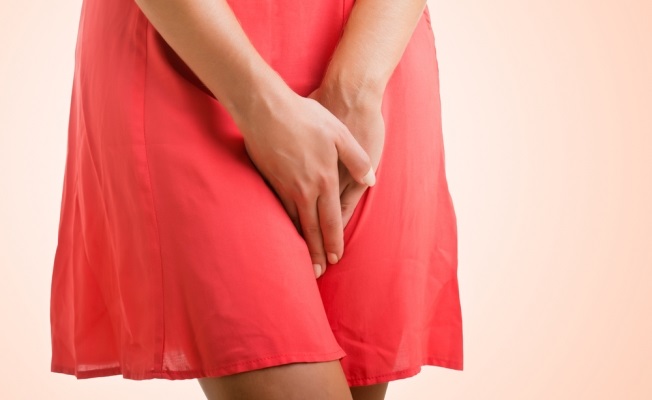
The cause of painful urination can be:
- the contact of the penis with a medical instrument, the mucous membrane of the urethra is very sensitive;
- inflammatory process upon completion of the procedure, infection may be introduced;
- hypersensitivity of the urethra.
When going to the doctor you should pay attention to exactly where the pain is located after urination. This is very important in making the correct diagnosis.
The most common painful places after urination:
- pain in the stomach;
- groin pain;
- in the lower back;
- in the crotch;
- in the head of the penis.
You also need to pay attention to additional symptoms:
- blood and / or pus in the urine;
- frequent urination;
- weakness, fever, fever.
It is important when painful sensations appear: at the beginning of urination, in the middle or at the end. These pains, along with the result of the analysis, help to identify the problem and make an accurate diagnosis.
Diseases that often occur with comorbid pain:
- stones in the ureter, characterized by pain after going to the toilet;
- gonorrhea, pain occur after urination;
- trichomoniasis, it hurts the same way;
- urethritis, constant pain, worse when going to the toilet;
- chlamydia, characterized by the presence of pain after writing;
- ureaplasmosis, often want to go to the toilet, feeling of a not completely empty bladder.
Pain in the groin and abdomen are characteristic of tumors and inflammatory processes in the bladder. Sore backache - it means a problem in the kidneys.
The most common are infectious and venereal diseases. They manifest themselves against a background of weakened immunity. In the early stages, these diseases are treated conservatively with antibacterial and antifungal drugs. In advanced stages, the treatment is longer and more serious.
Pain prevention
All discomfort and illness can be prevented. To do this, you need to carefully monitor your health and at the first, uncharacteristic symptoms for the body, consult a doctor. Self-medication is not a method. Traditional medicine is also not suitable for everyone. Only a specialist can soberly assess the extent of the disease and prescribe an effective treatment.
Himself can and should adhere to some preventive rules:
- maintaining a healthy lifestyle;
- refusal of smoking and alcohol in large quantities;
- hardening of the body;
- immunotherapy;
- protected sexual intercourse, the most reliable method of condom;
- do not freeze;
- examination at the doctor every six months in order to prevent.
These simple recommendations will help preserve men's health for many years, as well as allow for the reproduction of light healthy offspring. No matter how scary and difficult it is to overpower yourself, a timely visit to the doctor will help save health and money. It is much cheaper to cure the initial stage of the disease than to get rid of its consequences and complications. It is better to prevent the development of the disease than to suffer from serious diseases.
If it is painful for a person to write after a smear from the urethra, this may indicate both the presence of an inflammatory process in the body and inaccurate manipulations during the analysis.
A urethral swab is prescribed to determine if there are pathogenic microorganisms in the urethra.
Using a smear from the urethra, inflammatory processes of the urogenital system are diagnosed.
According to the results of the analysis, the doctor determines the exact composition of the microflora of the urethra. In case of detection of inflammatory processes, a specialist can make a study of samples for specific types of bacteria and determine whether a patient has an infection with venereal diseases.
The smear, among other things, makes it possible to detect fungal lesions of the organs of the urogenital system.
A smear from the urethra is prescribed if the patient complains of any strange symptoms of the urogenital system - pain, burning sensation, itching, unusual discharge, genital lesions of the rash and difficulty urinating.
In some cases, a smear may be prescribed for prophylactic purposes.
A smear is prescribed in the case of a full examination for sexually transmitted diseases. Such an analysis should be taken to anyone who had unsafe sex.
In order to take a smear from the urethra in men use a special probe or tampon.
The device is inserted into the urethral canal of the penis to a depth of about three centimeters. After that, the probe is turned several times, take out and place a special container.
In women, a smear is taken using a special applicator, which is inserted into the urethra at 3-4 cm. The study is performed in a gynecological chair.
For women, this diagnosis is often prescribed together with a vaginal smear. If there are no deviations from gynecology, then complaints of discomfort in the lower abdomen may be associated with diseases of the urinary organs and the urethra.
The smear procedure lasts about 2-3 minutes. To prepare for a smear from the urethra, one should refrain from urinating 1-2 hours before taking samples for analysis.
A few days before the study should be completely excluded sexual acts, antibiotics and alcohol.
If you suspect the presence of sexually transmitted infections, you should refuse to conduct tests during the period of exacerbation of infection.
After unprotected intercourse, it is advisable to take a smear from the urethra no earlier than three weeks. In women, the study is not carried out during menstruation.
Pain when urinating
Pain can occur in a patient already at the time of the smear procedure. In some cases, pain may indicate an inflammatory process in the body.
In a healthy person, discomfort occurs less frequently. Strong pains appear if already inflamed tissues are disturbed.
Then to the chemical irritation of nerve cells, which is caused by bacteria, is added physical - from contact with a medical instrument.
However, in some cases, pain occurs in healthy people from the fact that the physician does not accurately collect the sample for analysis.
The mucous membranes of any person are very delicate. It can damage them quite a weak physical impact.
Various external influences on the urethra can lead to the formation of mucous microcracks. Contact with urine causes irritation of wounds, and the patient complains of pain.
Attacks of pain when urinating are usually abrupt. Discomfort can last up to three days and gradually decrease over this period.
If the pain lasts longer or their intensity increases, you should seek medical help.
In order for pain after a smear from the urethra to last less and have a low intensity, certain recommendations should be followed.

The first urination is desirable to produce immediately after the procedure of analysis. Urine passes through the ducts of the urethra and helps the healing of microtraumas.
Some patients are trying to postpone the unpleasant process, but the bladder should be completely emptied in order to more quickly urinate.
In women, there may be a slight discharge of blood from the urethra. Therefore, an appointment with the doctor should seize the daily lining.
Sexual contact should be avoided for several days after the smear test. It is desirable to completely eliminate sexual arousal, because it causes a rush of blood to the pelvic organs and increased pain.
The less acute and salty foods in the patient's diet, the less irritable the urine will have on the urethra.

Prevention of diseases of the genitourinary system
In order to experience less pain when urinating after taking a smear from the urethra, you should minimize the use of this analysis.
First of all, you need to closely monitor sexual health. It is possible to become infected with sexually transmitted diseases, including from a person who has no signs of infection.
Many diseases of this group may be asymptomatic for a long time.
Sometimes infection can occur through blood, using one syringe and even a kiss. Some infections can be transmitted by household.
Optimal behavior in risky situations can reduce the risk of contracting diseases of this group.
First of all, you need to be attentive to the choice of sexual partners. If a person claims to be completely healthy, but differs in too large range of sexual partners, then his words should be questioned.
Sometimes this “health” can only mean the absence of manifestations of the disease.
Every untested sexual contact should be protected. To reduce the risk of infection, it is recommended to combine the barrier method of protection with the drug.
All protective equipment should be used in accordance with the instructions. If for some reason an unprotected act has occurred, then it is necessary to make douching or treatment with special preparations and consult a doctor.
Do not use personal hygiene items that belong to other people.
It is necessary to refuse contacts with surfaces of toilet bowls in public toilets. When you visit the sauna or bath you need to sit on a clean towel.
To avoid inflammation of the urinary system, hypothermia should be avoided.
Inflammation such as cystitis can occur if a person is just very cold. With the wrong treatment, the disease can become chronic and cause a strong inflammatory process.
In addition, inflammation of the urinary system can be the result of failure to timely visit the toilet.
Unfortunately, after taking a smear from the genital organs, a man may experience pain, discomfort and burning sensation in the penis. Moreover, these sensations, as a rule, arise sharply and sharply in the process of urination, gradually (within a maximum of half an hour) subside after going to the toilet, and in other moments they may not bother the man at all. Pain, pain and burning sensation when urinating after taking a smear can persist for 1 to 3 days, after which it goes away on its own and does not require any special treatment.
Pain, stinging and burning after taking a stroke in men are caused by touching the tools to the inflamed mucous membranes of the urethra. To visualize this situation, remember how much the sore wound, cut or furuncle on the skin hurts. And if you touch this wound, cut or furuncle, they will hurt even more, because mechanical effects will also be added to the chemical mediators of pain. On the mucous membranes, any mechanical contact with the inflamed areas provokes microcracks, because the tissues are rigid, swollen, strongly stretched and, therefore, easily damaged. That is, after taking a smear from the urethra, the already inflamed mucosa in a small area is also covered with microcracks, which do not pose a danger from the point of view of spreading, but increase pain. In the inflamed urethra, the pain after the smear intake is significantly enhanced by the fact that urine passes through it, which has strong irritating properties. However, this hypersensitivity condition of the inflamed urethral mucosa will last no longer than three days, during which urination can be very painful.
To minimize pain after taking a smear and to minimize the recovery time of painless urination, a man should follow the following rules:
- Within 20 minutes after the smear is taken, it is imperative to urinate, as this will speed up the recovery of painless urination and prevent short-term increased inflammation on the injured urethra. This first urination after a smear can be painful, but it is necessary to endure and release all urine;
- It is recommended to refrain from any sexual intercourse and generally sexual arousal for 2–3 days after taking a smear, since an erection will lead to a stretching of the inflamed urethra, which will increase pain and discomfort;
- Exclude from the daily diet any spicy, salty, spicy, fried, fatty foods and alcoholic beverages, which can also provoke an increase in pain when urinating, with a general irritant effect;
- Wear exceptionally soft, loose clothing made from natural fabrics, which ensures the free location of the genital organs and excludes rubbing, squeezing, pinching, etc.
- Release a few drops of urine that cause pain and burning in the urethra;
- Wait a few seconds until the burning stops;
- Release all urine.
However, all the discomfort (pain, burning, discomfort during urination) after taking a smear is a normal variant and disappears on its own within 1 to 3 days, without requiring any special treatment. If discomfort and pain creates severe mental stress, psychotizes a man and provokes

